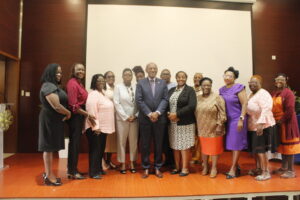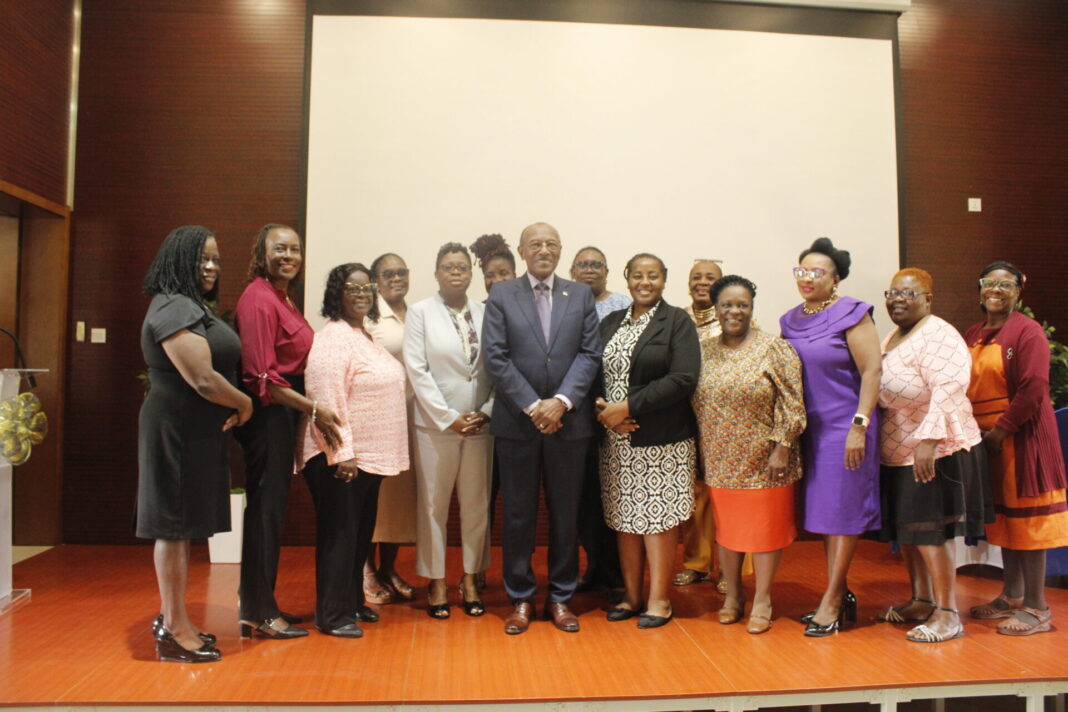The Caribbean Public Health Agency (CARPHA) launched a five-day training workshop on Monday aimed at equipping healthcare professionals with the tools to effectively manage diabetes.
The workshop, which will focus on the implementation of the 2019 CARPHA guidelines for diabetes management in primary care and the 2022 diabetes nutritional management toolkit, was attended by nurses and other primary healthcare providers and will aim at standardizing care across the region and combating the growing burden of non-communicable diseases (NCDs).
Health Minister Sir Molwyn Joseph, who delivered remarks at the opening ceremony, emphasized the urgent need for action against NCDs, which he said accounted for 70 percent of deaths in Antigua and Barbuda.
Permanent Secretary for Primary Healthcare Stacey Gregg-Paige described the initiative as addressing “not only the urgency of our present challenges, but also the collective promise of our future”.

Officials flanked by nurses. (Photos by Robert Andre Emmanuel)
“This workshop delivered under the theme ‘Strengthening Public Health Capabilities in the Caribbean Subregion’ is more than training. It is a strategic intervention,” Gregg-Paige said.
Dr Heather Armstrong, Head of the Chronic Disease and Injury Department at CARPHA, outlined the severity of diabetes in the region.
“Over 10 percent of Caribbean adults live with the disease and complications remain far too common — yet with evidence-based guidelines and practical national strategies, patient-centred counselling and effective tissue methods, we have the tools, not only to improve our own practice, but to multiply an impact to others,” she stated.
“The approach we’re using is a teach-back method where we go through the modules and highlight key messages that need to be shared from the guidelines, and at the same time, we’re also teaching them how to impart that training,” Armstrong told Observer.
The workshop will also emphasize patient empowerment alongside clinical standards, with Dr Armstrong noting: “If the client says ‘I want to do this’ they’re more likely to do it as opposed to say, ‘Oh, the doctor said I should take ABC,’ but then they go home and something else happens.”




